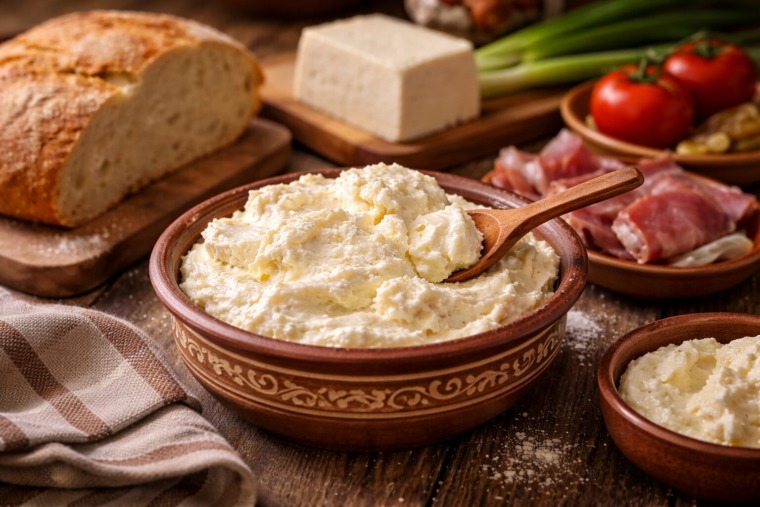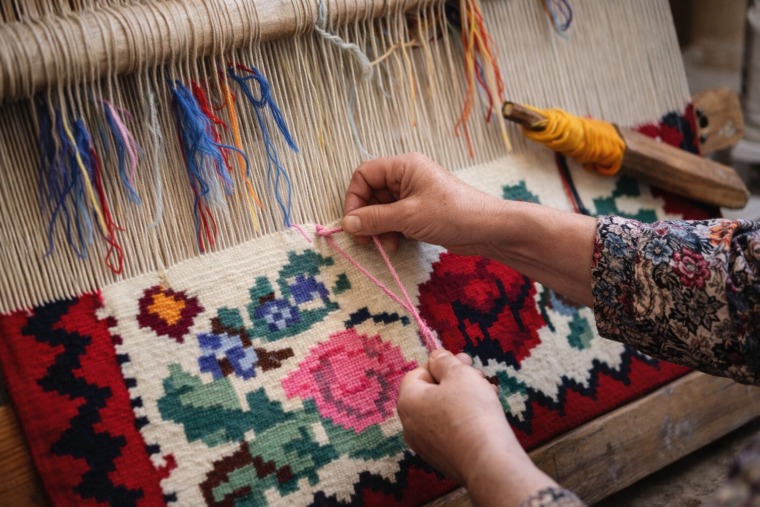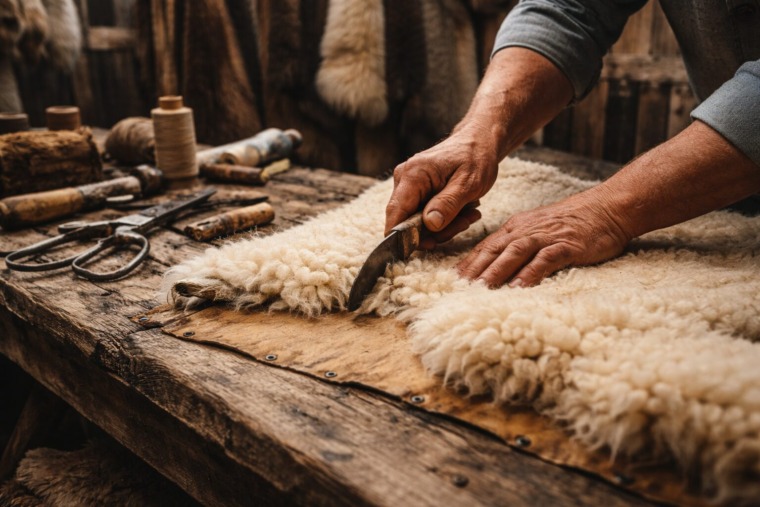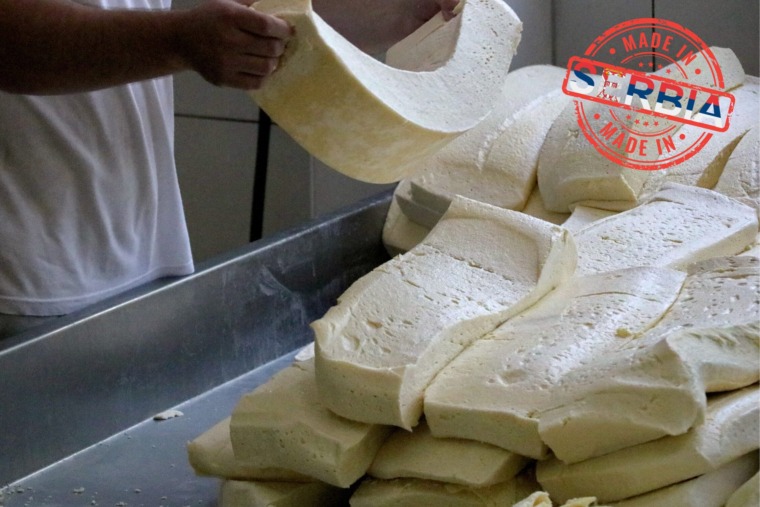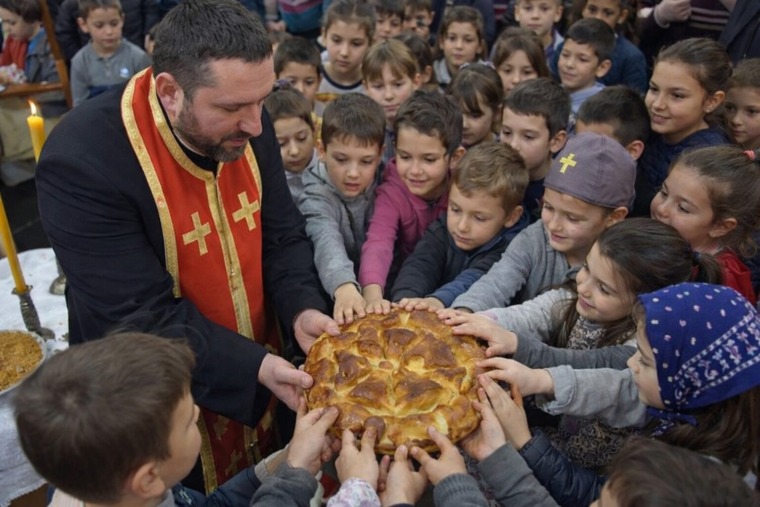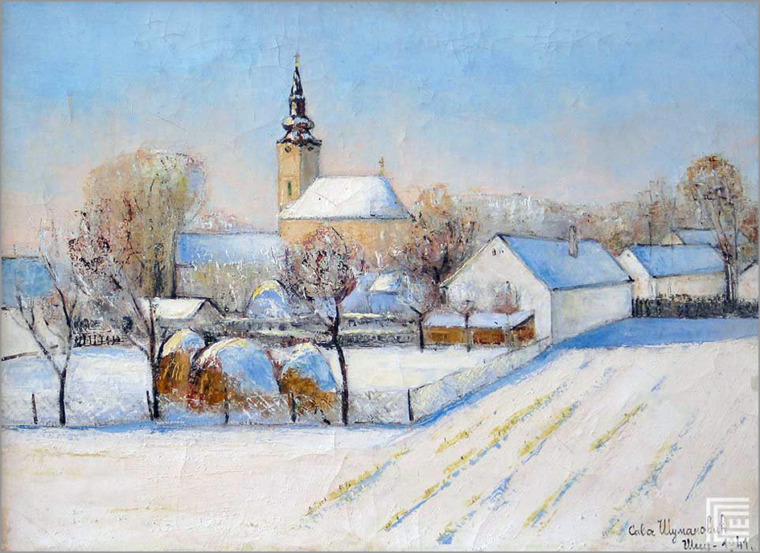
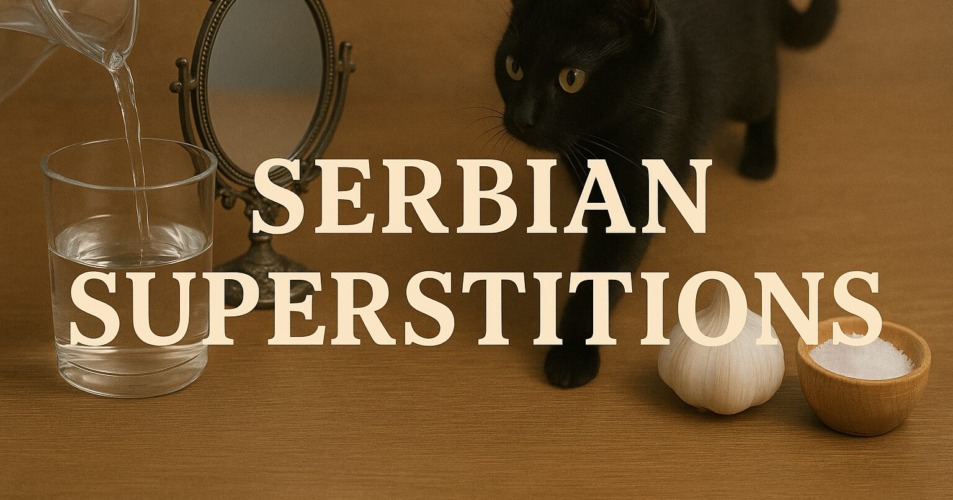
Even in today’s digital world, ancient superstitions are still alive in Serbia. Whether it’s throwing water behind someone for good luck or avoiding baby photos before baptism, these customs are deeply woven into the cultural fabric.
Where do these beliefs come from? How are they practiced today, and what do they reveal about the Serbian way of life? Let’s dive into the fascinating world of Serbian superstitions.
Most Famous Serbian Superstitions
🔹 Throwing water for good luck
When someone is heading out on an important journey (a job interview, an exam, travel), family members will pour water behind them to ensure a smooth path—“like water flows.” This custom is rooted in the symbolic power of water to purify and bring luck.

🔹 Don’t return once you’ve left the house
If you forget something and come back after already leaving, it’s considered bad luck. To break the “bad energy,” people will sit for a moment, look in a mirror, or flip something upside-down before heading out again.

🔹 Don’t sit at the corner of the table – you’ll never marry!
This widely known superstition still causes awkward shuffling at family gatherings. The table’s corner is thought to represent isolation—thus, sitting there means distancing yourself from future marital bliss.
🔹 A black cat crossing your path brings bad luck
This belief likely came from medieval Europe, but has taken strong root in Serbian tradition. To avoid bad luck, you’re supposed to spit three times or walk backward a few steps.
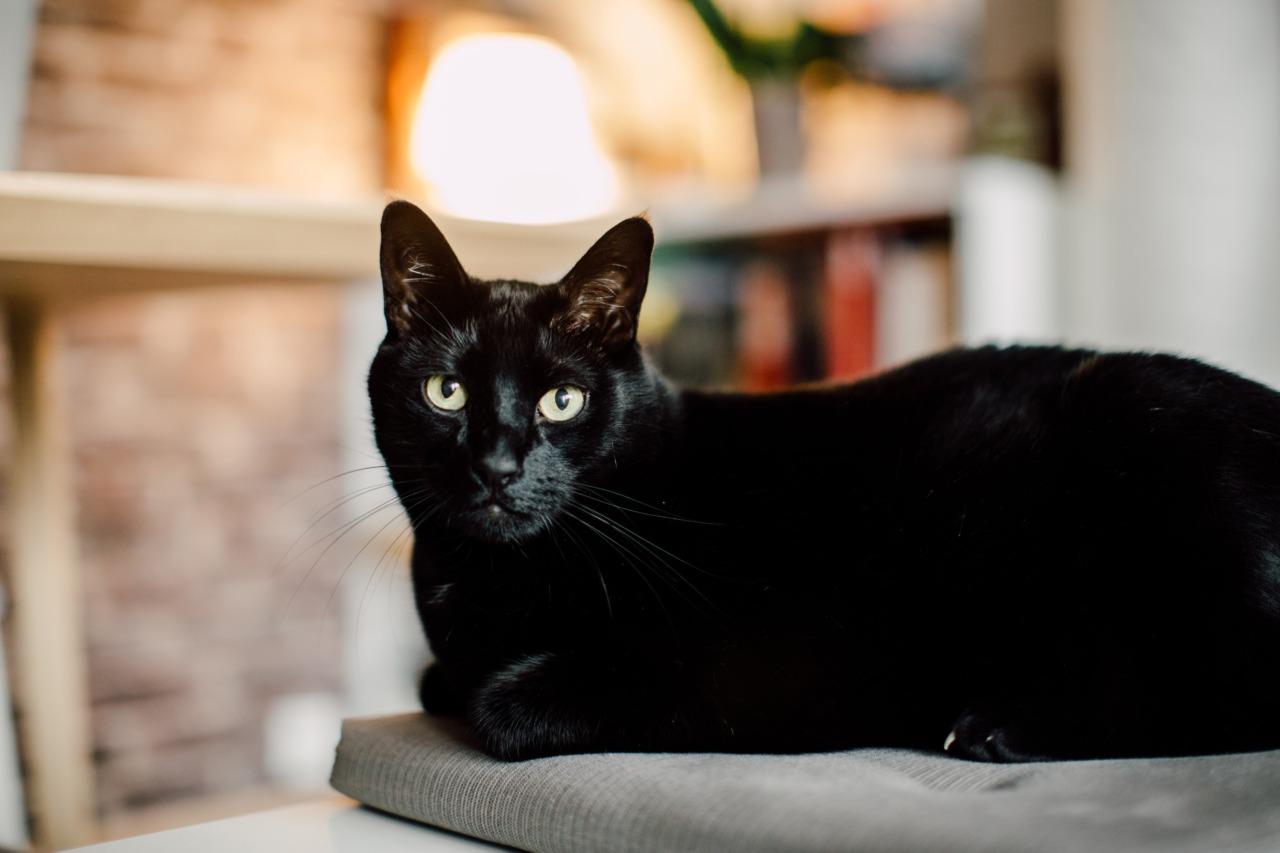
🔹 Salt on the doorstep and garlic for protection
In villages, salt is sprinkled at the entrance to keep evil spirits away. Garlic is often placed behind babies’ ears or near their cradle to protect them from the “evil eye.”
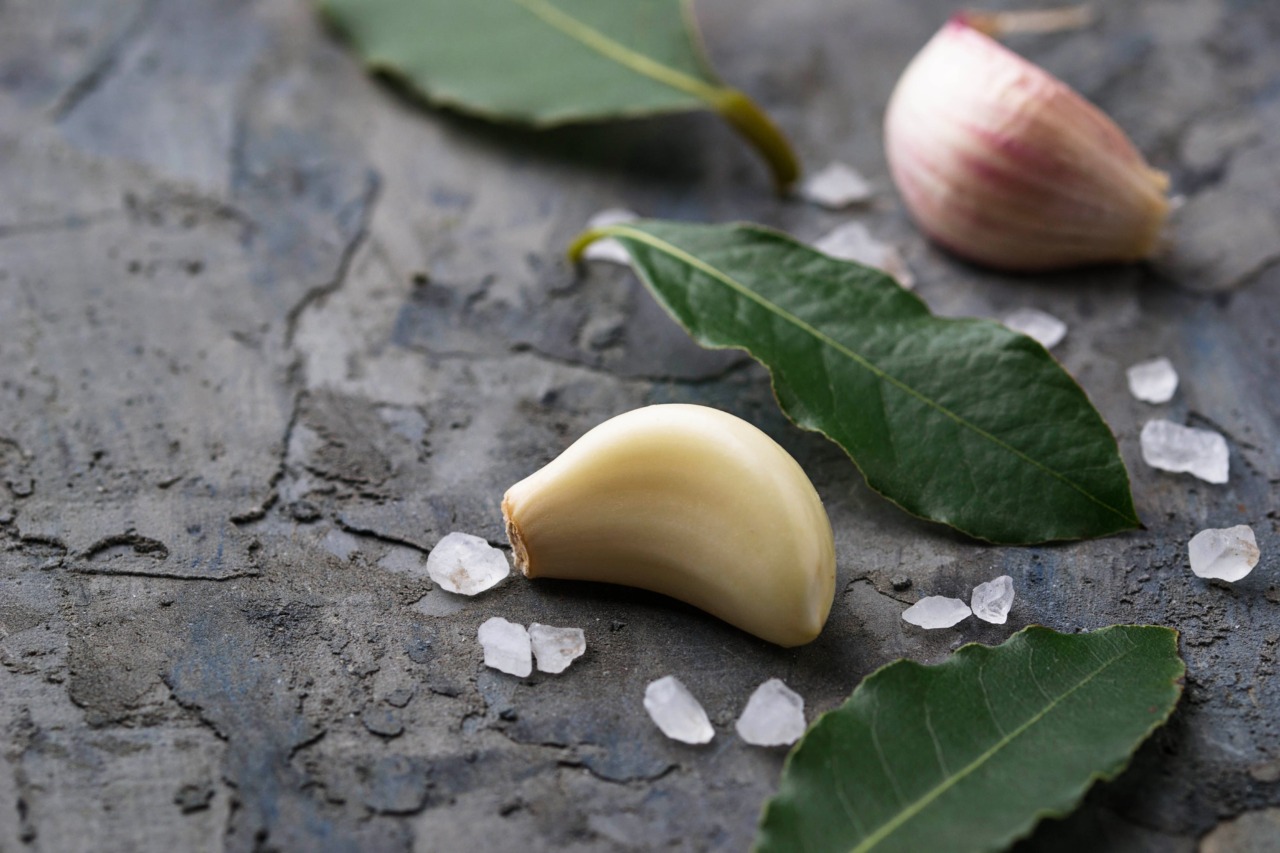
🔹 Don’t whistle indoors – you’ll lose money!
Whistling inside is believed to call the wind, which symbolically “blows away” wealth and prosperity.
🔹 Avoid cutting hair or nails on Tuesdays and Fridays
These days are considered “heavy” or unlucky. Cutting anything on such days might bring bad energy or disrupt the flow of good luck.
Where Do These Superstitions Come From?
Most Serbian superstitions have roots in:
- Slavic paganism – Beliefs in fairies, evil spirits, and sacred plants.
- Christianity – Many customs are a mix of pagan rituals and church traditions.
- Folk magic and oral traditions – Passed down by wise village women and local healers (babinice), who preserved these practices through storytelling and ritual.
Interestingly, many superstitions had a protective role—guarding homes, children, livestock, and health.
Practices Then and Now
Though many don’t fully believe in superstitions today, people still follow them instinctively, often “just in case” or out of family habit.
For example:
- People still throw water behind someone before an exam.
- Students won’t take graduation photos before the final exam, afraid of “jinxing it.”
- New apartments are blessed with incense and prayers to cleanse negative energy.
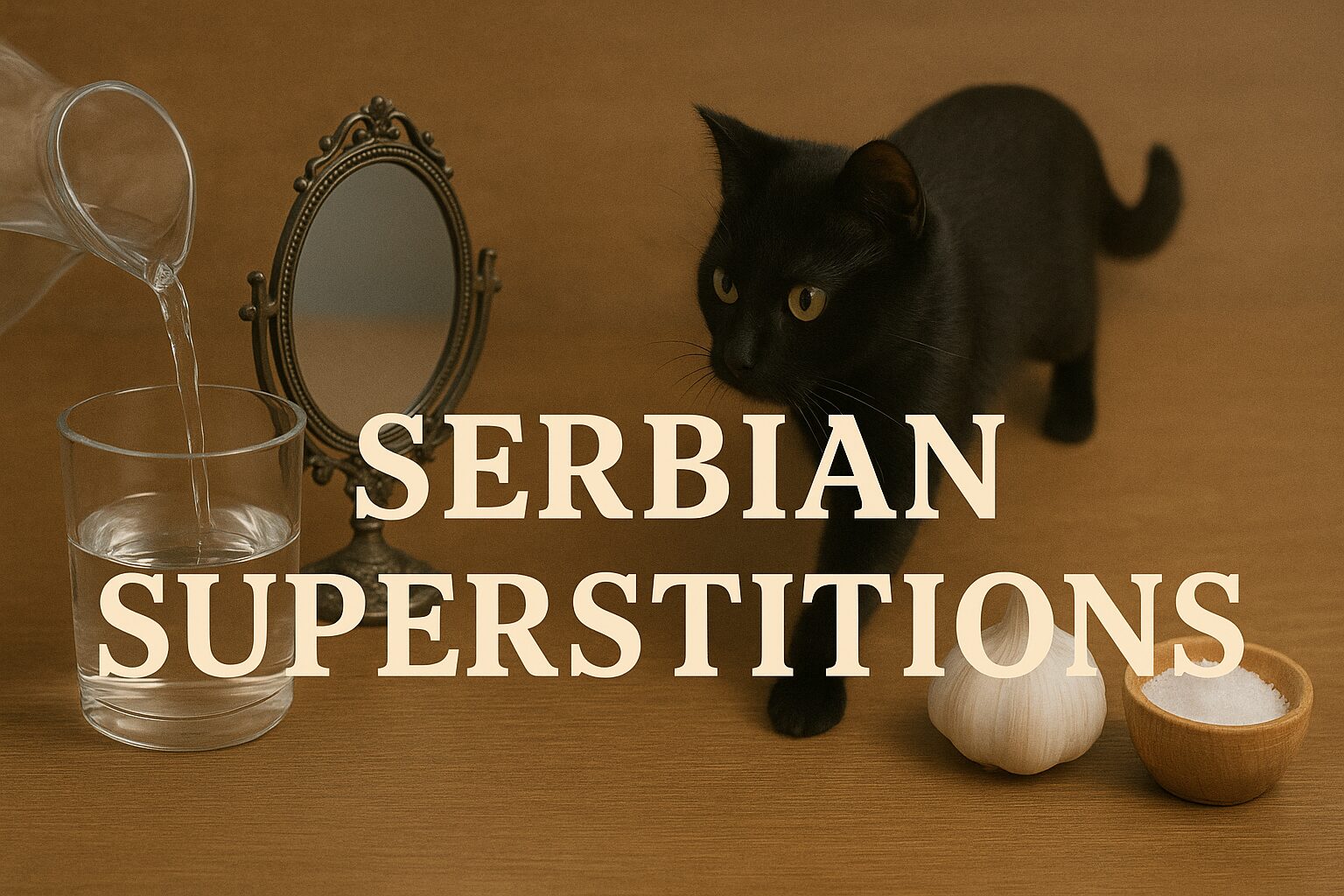
In rural areas, especially among older generations, superstitions are still practiced seriously and ritually, especially around weddings, births, funerals, and major holidays.
Fun Facts and Modern Variations
- Superstitions have moved online—young people now post about what not to do on certain feast days or what it means if your right palm itches.
- In cities, superstitions have become part of cultural humor—“I’m not superstitious, but I’ll spit three times just in case” is a common joke.
More Than Just Folklore
Superstitions are more than irrational fears—they are symbols of heritage, identity, and emotional survival. They connect us to the past, give us a sense of control in uncertain times, and remind us that even in logic-driven worlds, a little magic never hurts.
Related Articles

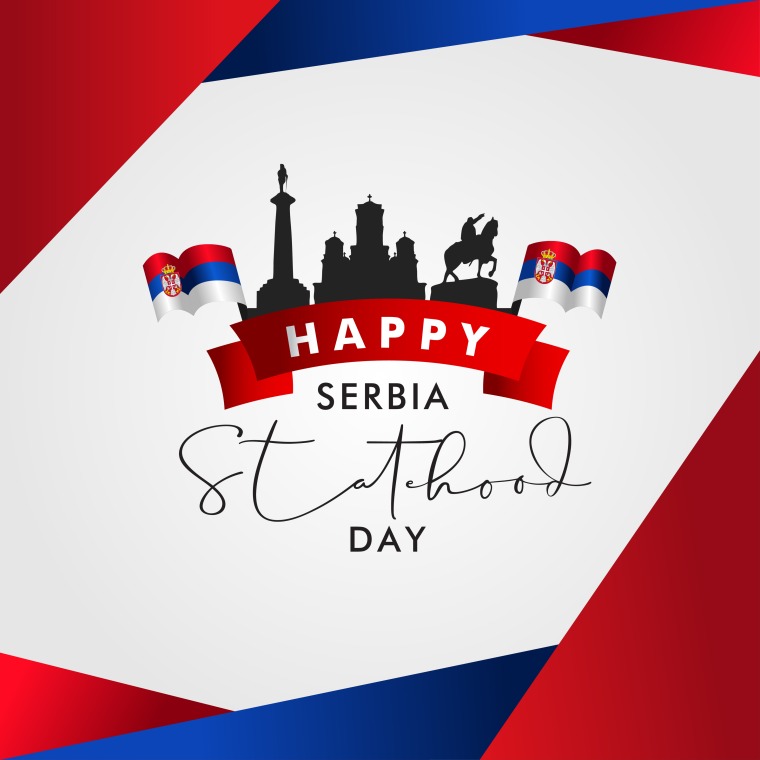
Interesting Facts About Sretenje You May Not Know
February 16, 2026

